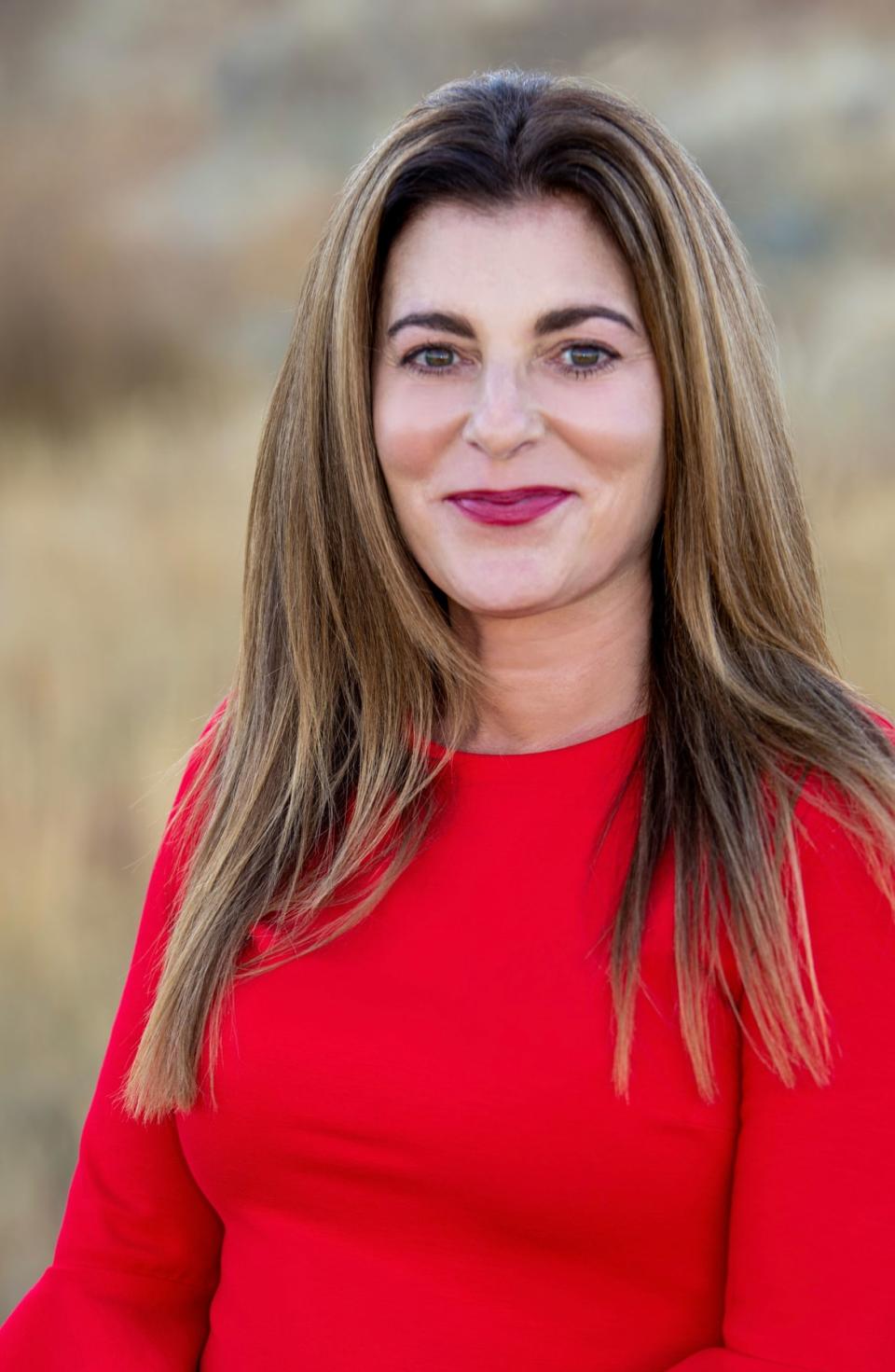Forget Weed. Legal Shrooms, DMT, and Mescaline May Be Next.

Since Colorado led the charge toward legalizing weed in the United States a decade ago, the phenomenon has spawned a massive tourist industry—and inspired panicky backlash.
Colorado in 2022 is marked by an abundance of pot shops offering all varieties of high-potency products, from traditional dried weed flower to edible gummies, chocolates, cookies, and sodas, as well as topical balms, epidermal patches, and even cannabinoid suppositories. A slew of businesses have popped up to target tourists who visit for a weekend engulfed in weed, perhaps catching a show at the famous Red Rocks amphitheater, or visiting cannabis-themed locations while toking-up on any of numerous “cannabis tours.” Eight years after New York Times columnist Maureen Dowd’s notorious edible-induced meltdown, the weed industry in Colorado is massively profitable, with $2.2 billion in sales last year.
Enter Initiative 58, a proposal on the ballot this fall that would legalize psilocybin, the key ingredient in magic mushrooms and—depending on who you ask—either open the doors to science-backed therapy or spawn a generation of shroom- and weed-crazed youth.
The proposal is framed almost entirely around a growing body of research pointing to potential mental-health benefits from drugs like magic mushrooms, which studies have suggested can help treat alcoholism and depression, among other conditions. It would establish a state-regulated therapeutic access program for mushrooms at state-licensed “healing centers,” under the supervision of state-licensed “facilitators.”
In other words, no straight-up dispensaries that cater to weekend Bachelor Parties.
But it would also decriminalize growing, possessing, using, and giving away mushrooms, along with three other plant-based psychedelic drugs: DMT, mescaline, and ibogaine. And after the therapeutic program for psychedelic mushrooms is up and running, the longer list of psychedelics could be reviewed for inclusion in the legal access regime in 2026.
Backers see a glide path to victory that follows the precedent set by cannabis and would take science-driven drug legalization to a new level. Opponents see all the dangers they previously identified in legal weed, but supercharged by hallucinogens.
“This is going to increase the use of these substances, and we’re not going to be able to control that,” Rep. Judy Amabile, a first-term Democratic state lawmaker who says her son developed persistent psychosis after experimenting with drugs, including psychedelics, told The Daily Beast.

The campaign to pass Initiative 58 has been well-funded, and state political observers see a clear formula for success—and a lack of organized opposition. But a spike in violent crime rates (as in other states during the pandemic era) and the specter of a sort of unhinged step-child of the legal weed industry represent potent tools for those determined to try and derail it.
“When we ask the open-ended question about what the biggest problems are right now… older voters are saying the cities are crime-ridden and dirty and filled with drugs,” David Flaherty, the founder of Magellan Strategies, a Colorado political polling firm, told The Daily Beast.
“A lot of those people believe the crime is caused by drug use,” he added, while noting that weed legalization passed despite opposition from older voters thanks to stronger support among younger ones.
Even some of the academics taking part in promising research on psilocybin and other psychedelics are careful to warn about the drugs’ dangers, especially when taken outside a clinical setting or when manufactured by third parties—like, say, at-home growers. Those fears have been echoed by some in the medical and law-enforcement communities in the state.
“We don’t let people grow their own antidepressants or anti-anxiety drugs and give them away,” said Dr. Libby Stuyt, a recently retired Pueblo-based addiction psychiatrist and legal weed skeptic. “That bastardizes medicine. It isn’t medicine if there’s not someone with medical training involved.”
Still, it’s safe to say the scientific case for legalizing drugs like shrooms is stronger than ever.
Meet the Woman Using Magic Mushrooms for End-of-Life Anxiety
In 2018 and again in 2019, the Food and Drug Administration designated psilocybin mushrooms a “breakthrough therapy” for depression research. Earlier this year, a U.S. Department of Health and Human Services official described the federal agency’s consideration of a task force to monitor issues related to the use of MDMA and psilocybin mushrooms to treat PTSD and depression, explaining, “we must explore the potential of psychedelic-assisted therapies.”
Backers say people are going to use the drugs anyway, whether legal or not, and that the potential health benefits—however tentative—demand action now.
“There’s a mental health crisis in this country,” Rick Ridder, the legalization campaign’s political consultant, told The Daily Beast, citing veterans dealing with PTSD, among other issues. “Psilocybin and these natural medicines can help with them, and that’s validated in these studies.”
If passed, the Colorado ballot measure, called Initiative 58 or the “Natural Medicine Health Act of 2022,” would go further than the pair of ballot measures passed by Oregon voters in 2020 that decriminalized all drugs and set into motion a state-regulated therapeutic access program for psilocybin mushrooms. (Oregon plans to adopt final rules later this year and put the program into effect in early 2023.)
Specifically, the home-grow provision and the potential for legalization of other psychedelics would put it at the cutting edge of drug policy. And the campaign behind the ballot measure has been well financed, having raised nearly $2.8 million earlier this year, most of which went to paying for the signature gathering effort that put the measure on the ballot. The campaign says they’re raising more now and are planning for a TV and digital advertising campaign that will begin around the time mail ballots are delivered to voters, in mid-October.
Research into potential benefits of these drugs has been buoyed by recent popular media extolling the benefits of psychedelic drugs, like Michael Pollan’s 2018 book and now Netflix series on the topic, How to Change Your Mind. Joe Rogan and his guests openly discuss psychedelic experiences on his (controversial) podcast that reaches millions of listeners. Entire corners of TikTok are dedicated to micro-dosing—taking amounts of psychedelic drugs so small as to have an imperceptible hallucinatory effect, while potentially increasing creativity and productivity.
Meanwhile, a recent study backed by the National Institutes of Health shows hallucinatory drug use is up significantly in recent years among the population at large.
For Betty Aldworth, the communications and marketing director at the Multidisciplinary Association for Psychedelic Studies (MAPS), an organization that promotes research into and policy changes around psychedelic drugs and marijuana, the increased use is a sign of changing attitudes.
“If you were like me, in elementary school and junior high, you were subjected to a tremendous amount of misinformation about drugs. The message has been, ‘Drugs are bad and the people who use them are bad,’ so a fear response develops around them,” Aldworth said. “So I think a lot of people might not have been comfortable with allowing access to psychedelics, say, five years ago. But the new research is really compelling, and there is a recognition of that.”
Legalization backers say fears about young kids being lured into dangerous cycles of psychedelic use are wildly overblown.
Unlimited Sciences, a Colorado-based nonprofit organization that researches psychedelic drug use, is currently working with 8,000 study participants, 1,000 of whom have completed a five-month prospective observational study. Del Jolly, the group’s appropriately named co-founder, said their “very preliminary” research into psychedelic drug use since Denver decriminalized psilocybin at the local level in 2019 suggested that the average user was 39.5 years old.

“Not 20-year-old kids getting high,” he said. “And the majority of them were first-time users.”
The model outlined in Initiative 58 would create a regulated path for people to access the drugs in Colorado, and in that sense is in fact similar in some regard to how cannabis is regulated. Supporters say that should reassure the public, because there will be standards and controls on the supply, possession, and oversight of the drugs. But the campaign has been careful to argue that the therapeutic access model would be different in significant ways.
Initiative 58 envisions at least three sessions with state-licensed facilitators. First, a “preparation” session, then an “administration” session, where the participant takes the drugs under the facilitator’s supervision, and a third “integration” session.
Already, Coloradans can find psychedelic coaches who offer to lead their mental and emotional health therapy with the supervised use of psychedelics.
Take Megan and Nicole Smith, a pair of sisters who live in Colorado Springs and run Zenchronicity, a company that supports others who want to use psychedelic drugs to treat their trauma, similarly to what Initiative 58 proposes. From their website, people can apply to have the sisters coach them through the process.

“It’s almost like an AA (Alcoholics Anonymous) setting,” Nicole Smith said, “where you’re with coaches or you’re with somebody that has similar trauma that’s worked through it.”
The sisters promise to combine the psychedelic drugs with elements of Jungian psychology and cognitive-behavioral therapy. But the success of the legalization campaign may depend in part on whether suburban voters and others who favored curbing the excesses of the war on drugs when it came to weed a decade ago think people like the Smith sisters can serve as gate-keepers for psychoactive substances.
Dawn Reinfeld, the executive director of Blue Rising Together, a Colorado-based nonprofit organization that works to keep high-potency marijuana products away from children, said Coloradans were fooled a decade ago into approving drug policy that has spun completely out of control.

“When Colorado voted for legalized marijuana, voters thought they were legalizing smoking a joint that had a potency of 3% or 5% THC. Now we have marijuana concentrates that are 99% THC,” Reinfeld said. (It’s not clear that THC potencies are quite that high, but some concentrates have been tested at greater than 90 percent, according to research assembled by Stuyt, the addiction psychiatrist.) “Last year, the state had to [announce plans to] issue warnings about these high potency products. It’s addictive. It can cause psychosis.”
Some opponents specifically take issue with the provision of Initiative 58 decriminalizing the personal cultivation, use, and the potential giving away of the psychedelic drugs, arguing it could be exploited as a legal gray area. They point to states like New York that are in the process of legalizing weed but where some dispensaries are already using the “gift” provision as cover for de facto marijuana sales.
On the other end of the spectrum, a faction of psychedelic drug proponents say they believe the ballot measure headed to voters this fall is too restrictive, with too much regulation. They want a system that doesn’t put government bureaucracy—in this case, the state-run oversight board and state-certified healing centers and facilitators—between people and psychedelic substances.
Both sets of opponents question why New Approach PAC, a Washington, D.C.-based political action committee, is financing practically the entire campaign. The group, which financially supports policy changes on social issues, especially marijuana legalization efforts, is funded largely by Dr. Bronner’s soap company and a foundation left behind by a fragrance magnate who died in 2020. Some activists in the state tried—and failed—to get a competing decriminalization measure on the ballot, spooked by what they described as a hyper-capitalist approach to legalization.
A spokesperson for New Approach PAC called the claims baseless.
“It doesn’t really make sense,” Taylor West, the group’s chief of staff, told The Daily Beast. “New Approach has been around for a decade, and mostly our work has been on cannabis policy reform.”
“There seems to be the idea that because we have philanthropists working on this, there must be a profit motive, and it’s not the case,” she added.
Still, to the extent that tolerance—and even the embrace—of psychedelics has emerged as a sort of lodestar in some progressive circles, legalization may be tough to stop.
Flaherty, the pollster unconnected to the legalization campaign, cited younger voters who appear to be especially invigorated this year because of the overturning of Roe v. Wade. That level of activation may help compensate for what normally would be a more conservative midterm electorate.
“Young voters could turn out a good six percentage points higher than usual this year,” he said. “That could be a tailwind for the ‘yes’ campaign.”
Get the Daily Beast's biggest scoops and scandals delivered right to your inbox. Sign up now.
Stay informed and gain unlimited access to the Daily Beast's unmatched reporting. Subscribe now.

